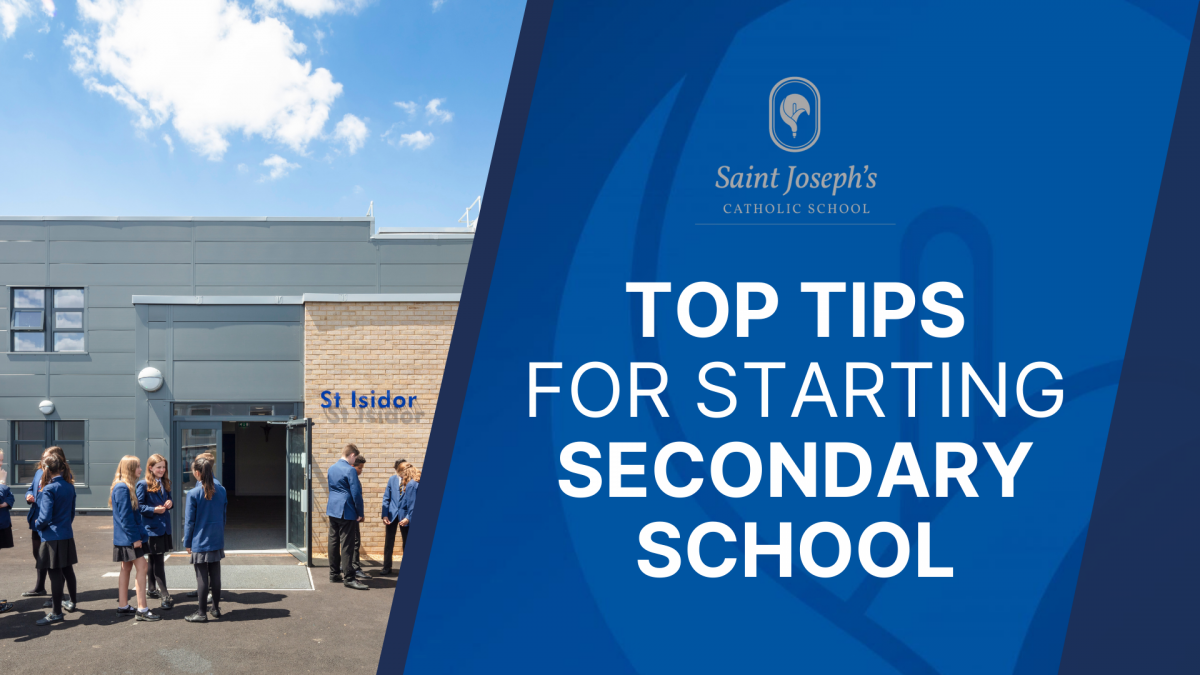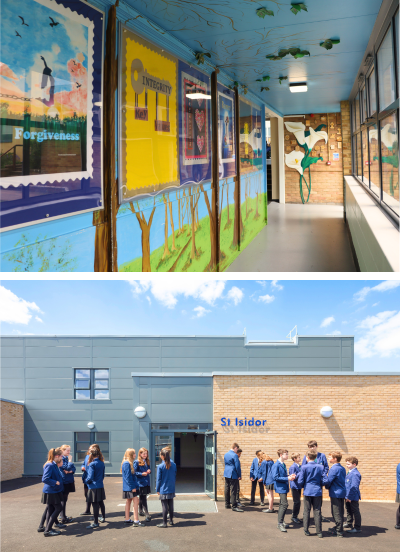Published June 16, 2021
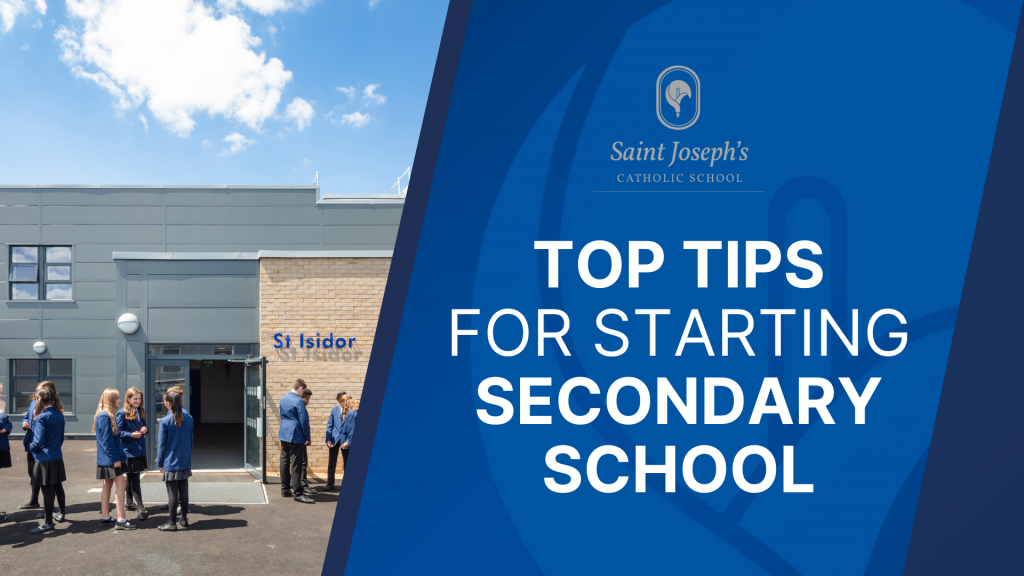
Starting secondary school is an exciting time for pupils, but it can also be daunting. At St Joseph’s, we do everything we can to make sure pupils feel safe and happy in their new school, while giving parents and carers confidence that their children will be well looked after during their time here.
In this guide, we will share some top tips for pupils starting secondary school in September, and some ways parents and carers can help support them as they start their new journey.
Want to download this guide as a PDF? Click here!
Contents
- Top 10 Worries About Starting Secondary School
- How Can I Help as a Parent?
- What Is Different About Secondary School
- Getting There and Back
- Uniform Matters
- The New Timetable: Being in the Right Place at the Right Time
- Organising Books and Equipment
- The Organisation of Secondary School
- Problems Children May Experience and What to Do About Them
- A Guide to Parents’ Evening
- Contacting the School
Top 10 Worries About Starting Secondary School
- Being bullied
- Not making friends
- Getting lost
- Homework
- Not being able to do the work
- Getting to school and back (especially if it involves a bus journey)
- Not having the right books and equipment
- Not knowing what to do if there’s a problem
- Not getting on with the teachers
- Getting into trouble
How Can I Help as a Parent?
Moving from primary to secondary school is an exciting and significant event in the life of your child. It is an important milestone which, for many parents and teachers, marks a change in expectations regarding crucial life-skills such as independent working and self-organisation.
New Skills
When a child starts at secondary school, they are expected to cope with a whole variety of new experiences and changes, many of which demand skills and abilities that they have not had to use before. The problem is that these skills do not spontaneously develop in children in the summer before they begin secondary school – like reading and writing, they have to be taught and our children need support in developing them.
Most parents would like to help reassure their children, prepare them for these changes, and support them in developing the skills they need, but feel they lack the information and expertise to do so. For many of us, our own experience of secondary school is all we have to go on.
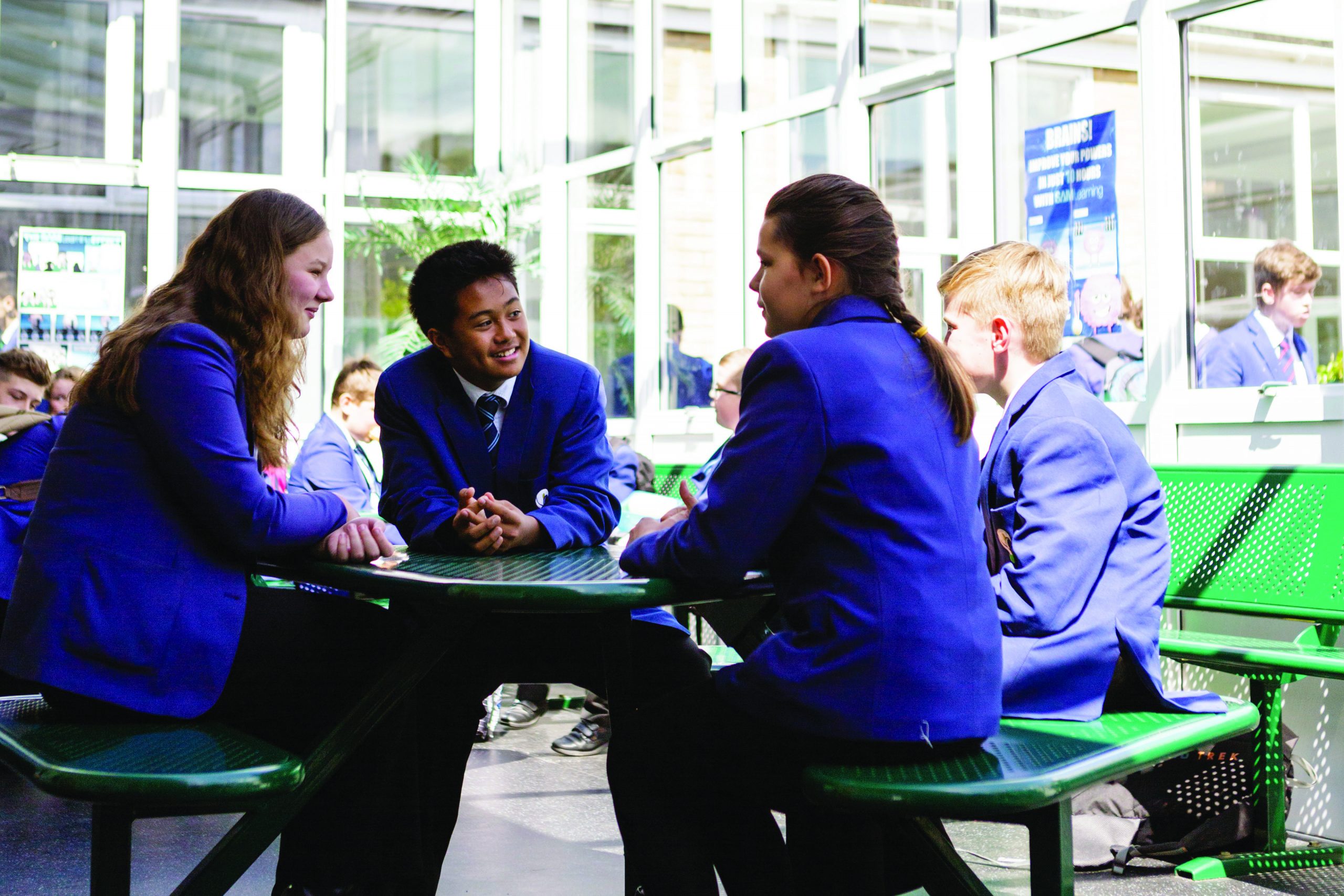
Making Friends
The top worries that Y 6 children express are social concerns. Although common, most children report that they are no longer worried about these after just one or two weeks at school!
If your child expresses these worries it is useful to tell them this, and to emphasise that everyone else will also be feeling anxious. As there will be many more children in Y7 than in Y6, everyone has a good choice of friends, and even children who move up with several children from their class tend to make new friends at secondary school.
Talk to your child’s Y6 teacher if these worries become great – they may be able to arrange for your child to meet some other pupils who will be starting (or already at the school) and perhaps have a “buddy” for the first two or three weeks.
Organisation & Independence
The remaining worries are nearly all to do with the new organisational demands that they know will be placed upon them. Luckily these are the areas in which we can help most.
The aim of this guide is to provide you with the information you need to help your child to achieve independence, while supporting them in getting there. To achieve the balance of doing too much or too little for your child is hard – a useful rule of thumb is:
“Never do anything regularly for your child that they are capable of doing for themselves.”
The guide clearly outlines exactly what your child needs to be able to do to succeed at secondary school and provides as many practical tips and ideas as we could cram in to help you to help them develop the skills for success.
These tips and suggestions are practical, down to earth and been used by real parents with real, busy lives. You do not need to be an “expert” or devote your life to your child’s schooling to help your child to get it right!
Time spent early in establishing habits of work and independence is an investment that will save endless time, battles, and heartache in the long run. The habits and routines that children develop in Y7 are those that will stay with them throughout their secondary schooling and often throughout their working lives – it’s worth the effort of getting it right to start with (and is so much easier than putting things right when they’ve gone wrong). If you can help your child to do this, you will really be making a difference.
What Is Different About Secondary School
There are some key differences that children will face when transitioning from primary to secondary school. Some of these differences are:
- Children often need to travel further (some making their way to and from school independently for the first time – some travelling by bus).
- They may have to wear a full school uniform for the first time and have a whole list of new rules and regulations to remember.
- Instead of one teacher, who has often known them since their early years, they will be taught by nine or ten teachers and have to get to know a whole range of adults in different roles within the school.
- The site will be much bigger, and children will have to find their way around, moving from classroom to classroom between lessons, often carrying their belongings with them.
- They will have to use and interpret a complex timetable (ours is a two-weekly one like many other schools) and a school planner (like a diary).
- For the first time children may be fully responsible for ensuring that they have the correct books and equipment for six different lessons, their dinner money, bus fair, PE kit etc.
- Children will be given full responsibility for recording homework, completing it by the correct day and giving it in on time.
- There will be new lessons (e.g. languages) and new variations on familiar ones (e.g. science in a laboratory)
- Teaching and learning styles may be very different. Children may be expected to write more frequently and for longer, and they may be expected to select appropriate reference books from the library.
- Break and lunch time will be organised differently with less adult supervision and children having a lot more independence in terms of getting back to lessons on time, buying their own snacks and lunches etc.
- In general, pupils are expected to be more independent, self-reliant, and self-organised – a welcoming development for many pupils but a challenge for most.
Getting There and Back
Pupils will need to face a number of key tasks to ensure they get to school on time, and return home safely at the end of the day. These include: getting up on time; getting washed, dressed and ready to walk out of the door with everything they need; leaving the house to get to school on time, whether they’re walking, getting the bus, or cycling; being in the right place at the right time at the end of school; and knowing what to do if they are delayed for any reason.
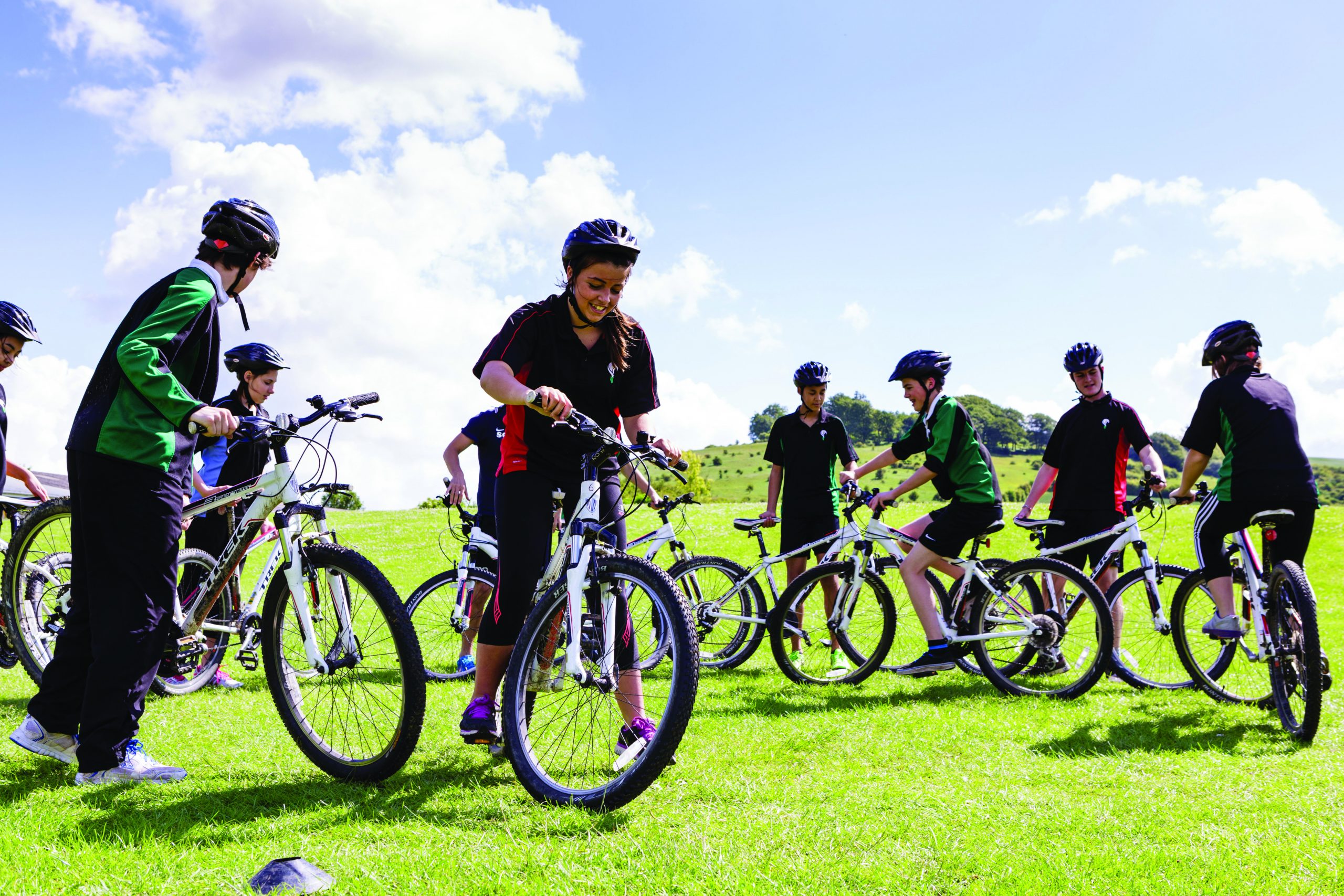
To help your child feel ready for this, there are a few things you can do before they start.
Before your child starts:
- Time the journey to school or the bus stop.
- Be sure your child is clear about what time they are expected to be home and what to do if they are held up for any reason.
- Make sure they know/have your contact numbers.
- Make sure the child has an alarm clock and they know how it works. Do a test run the day before their first day at school.
- Work out with your child what time they will need to get up to get to school on time. Work backwards from the time they need to be at school and include all the things they will need to do.
- Agree a routine for the mornings and after school. Will they shower/bath in the morning or evening? Will they get their school bag ready the night before or in the morning?
- Who will make the packed lunch and when, or will they buy lunch in school?
- Agree a bedtime for school days so your child gets enough sleep.
- Have a couple of practice runs – set your child the challenge of getting up at the correct time and getting ready.
When they start:
- If possible, be around for your child for the first few days/weeks and “supervise”. Praise and encourage independence but be ready to offer a helping hand.
- Keep your side of the bargain – if you have arranged to leave dinner money on top of the fridge – make sure it is there!
- Go through the routine regularly with your child if necessary and provide a tick list to help them.
- Insist on the routine being kept to – it will save you hours in the long run!
Uniform Matters
At St Joseph’s, we have a strong focus on maintaining uniform standards for all year groups. For details regarding our uniform standards and where to order new uniform, please refer to this page.
Pupils much ensure that:
- They know the school rules regarding uniform – including jewellery and make-up.
- Everything is ready to put on the evening before (including shoes and underwear!)
- A full PE kit is taken to school on the days it is needed.
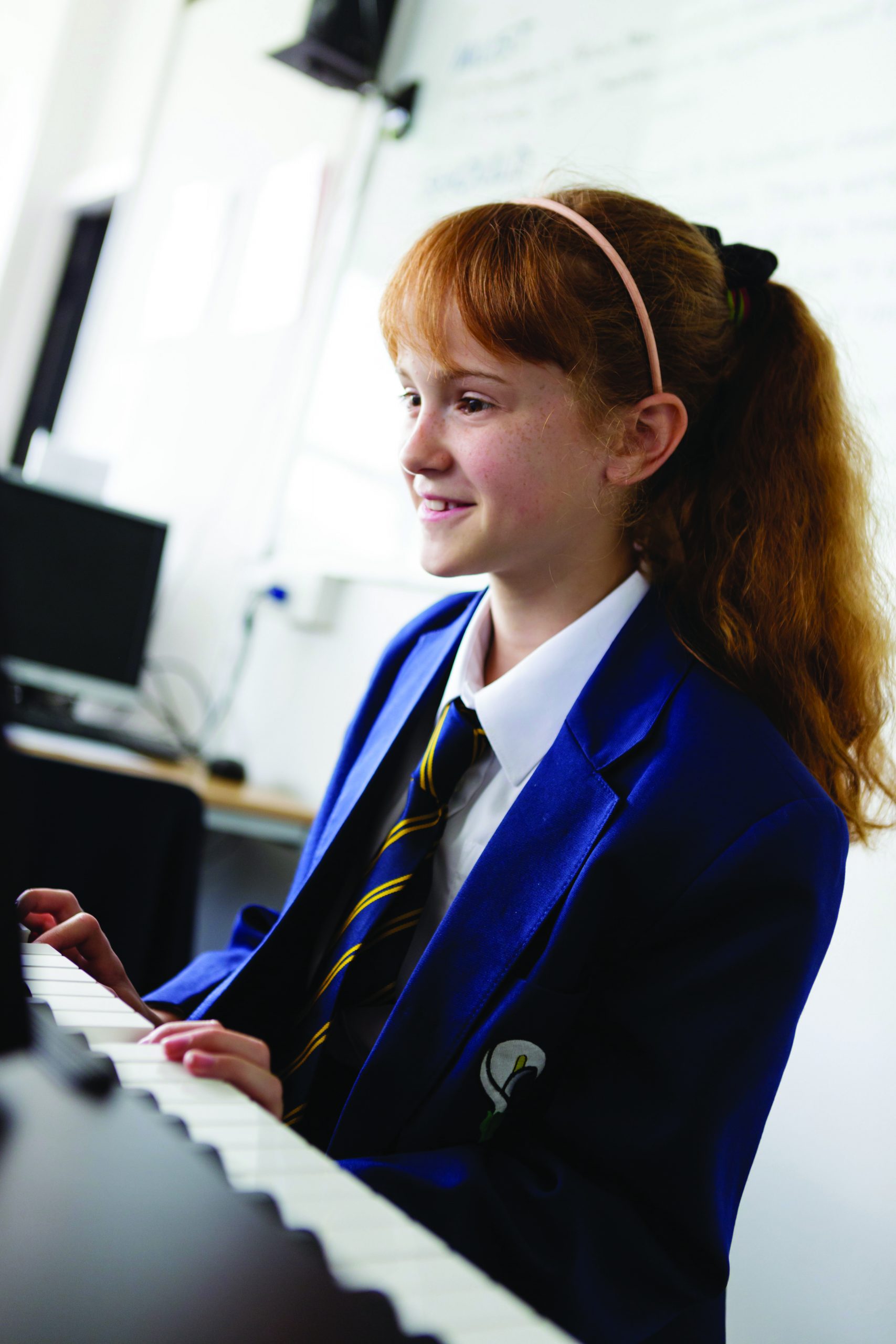
Before your child starts:
- Check the uniform requirements including rules regarding make-up and jewellery.
- Ring the school if you may be entitled to financial support for school lunches etc.
- Name everything, even shoes – you would not believe what children lose! A marker pen is as good as labels.
- Have spare essentials at home if possible, it prevents panic when things get mislaid at 8.30 am (as they do!).
When they start:
- Encourage your child to hang up their uniform straight away after school.
- Decide on responsibilities – who irons the shirts? Who puts them away? Etc.
- If your child is very disorganised, check items one by one or give a checklist at first.
- Encourage your child to put everything out (including shoes, socks or tights, and underwear) the night before (there’s much more time in the evening for finding out you have odd socks).
- Have a system for making sure that clothes are clean and ready – the earlier children start to take responsibility the better, but whoever does it, both parties need to know the system.
- If you have a timetable displayed for your child, colour the days when your child has PE so they can see each day if they need to take their PE bag.
The New Timetable: Being in the Right Place at the Right Time
As mentioned above, having a complex timetable to stick to might be daunting to begin with, but pupils will soon master where they need to be, especially if they stick with friends who are in the same classes as them. Some key tasks for pupils include:
- Knowing what lessons take place on a particular day.
- Knowing where the classroom for each lesson is.
- Knowing who the teachers are.
- Getting to lessons on time – especially after break and lunch.
- Knowing what equipment is needed for each lesson (e.g. ruler, compass, calculator for maths) and having a bag packed with everything needed for that day.
- Using the planner to write down important notes, messages, and homework and to refer to as a reminder.
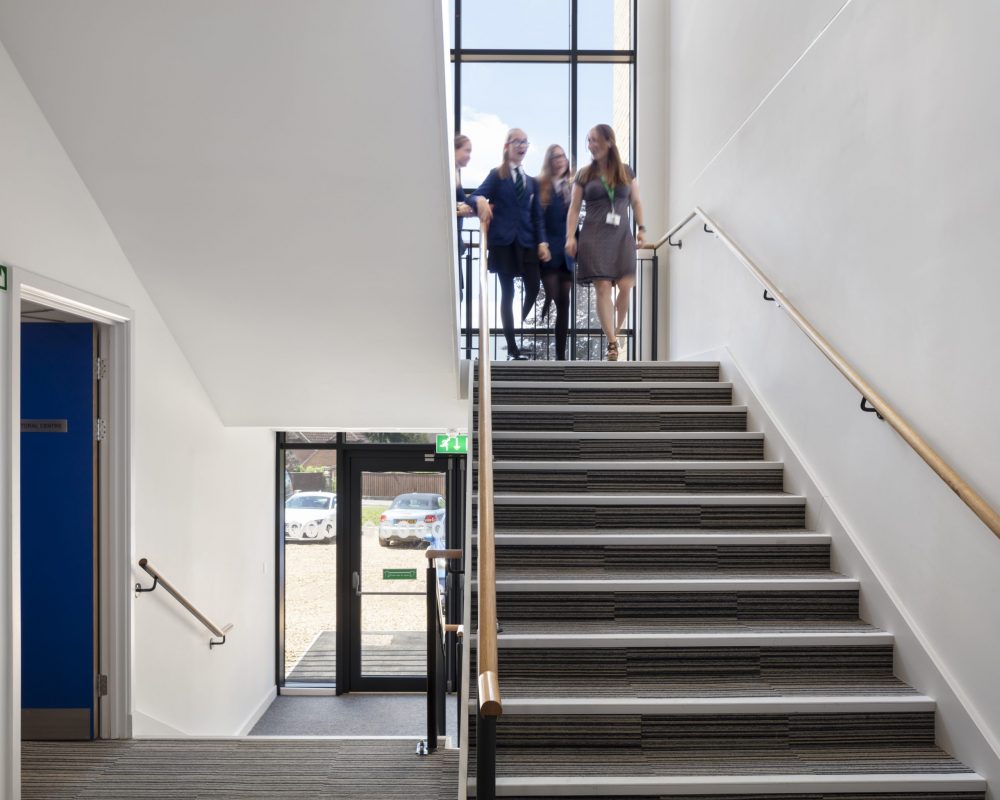
As a parent, it’s a good idea to make sure you familiarise yourself with the school, too. Following your visit to the school, feel free to ask any questions about how the school is laid out/organised. Children will be given a school map, so take a look at it yourself and, if necessary, talk with your child about how they’ll get from one place to another and make sure they understand the map layout. The same goes for the timetable – it can look complicated, but once you break it down and know how it works, your child will get the hang of it in no time.
Most of all, just reassure your child that they will quickly get to know their way around (most have it mastered within a couple of weeks), and that they move around as a group to start with. Teachers are very understanding about children getting lost to begin with, and usually, help is at hand if needed.
Organising Books and Equipment
Before your child starts:
- Help your child organise their living space at home so that they have a place for everything to do with school. Try to make sure they have access to a desk, good light and storage space for their school books.
- Equip them with the tools they will need at home (it’s best to keep two sets of everything – one for school and one for home so that losing a pen at school does not stop them doing their homework).
- A useful home tool kit consists of pencils, pens, rubber, sharpener, crayons, felt pens, ruler, maths equipment (protractor, compass, set-square and calculator), Sellotape, glue-stick, paper (lined and plain) and plastic wallets.
- A box file or stacking system is useful for pupils with organisational problems each file can be labelled with a subject and all books, worksheets etc. can be kept ready to pull out and put in the schoolbag when required.
- A labelled A4 plastic or card folder to take to school for each subject is useful – pupils are given lots of worksheets which they are not used to organising. Folders can hold all work sheets, books etc.
- An additional A4 plastic or card folder for finished homework is useful for children with poor memories – they can check it each lesson to see if there is homework to be given in.
When your child starts:
- Teach a routine for ‘emptying the bag’. The subject folders or books are replaced in the system. Any subjects for which homework is required are placed in homework to be done pile. Do this with your child to begin with if necessary, then gradually let them take over. Even when your child “has got it” do “spot checks” every so often.
- Encourage your child to glue any worksheet/odd bits of paper into their workbook if possible each night – otherwise the sheer volume of bits of paper becomes impossible.
- When homework is completed supervise the packing of the bag. This is best done the night before.
- The displayed timetabled can be used as a checklist for subject folders and equipment. Write the equipment needed at the top of each day.
- Encourage your child to check their planner for any reminders/notes each night. It’s usually worth double checking!
- If you know your child has Food Technology (cookery) on a certain day, check at the beginning of the week if they need ingredients – searching through cupboards on the morning ten minutes before the bus leaves is not recommended!
The Organisation of Secondary School
In a primary school, the roles and titles of staff are usually quite straightforward – you have a head, a deputy head, several class teachers, some teaching assistants a few other assistants and an office administrator. There is usually a lot of informal contact and you are likely to know exactly who to talk to when you need to and have a close relationship with your child’s class teacher.
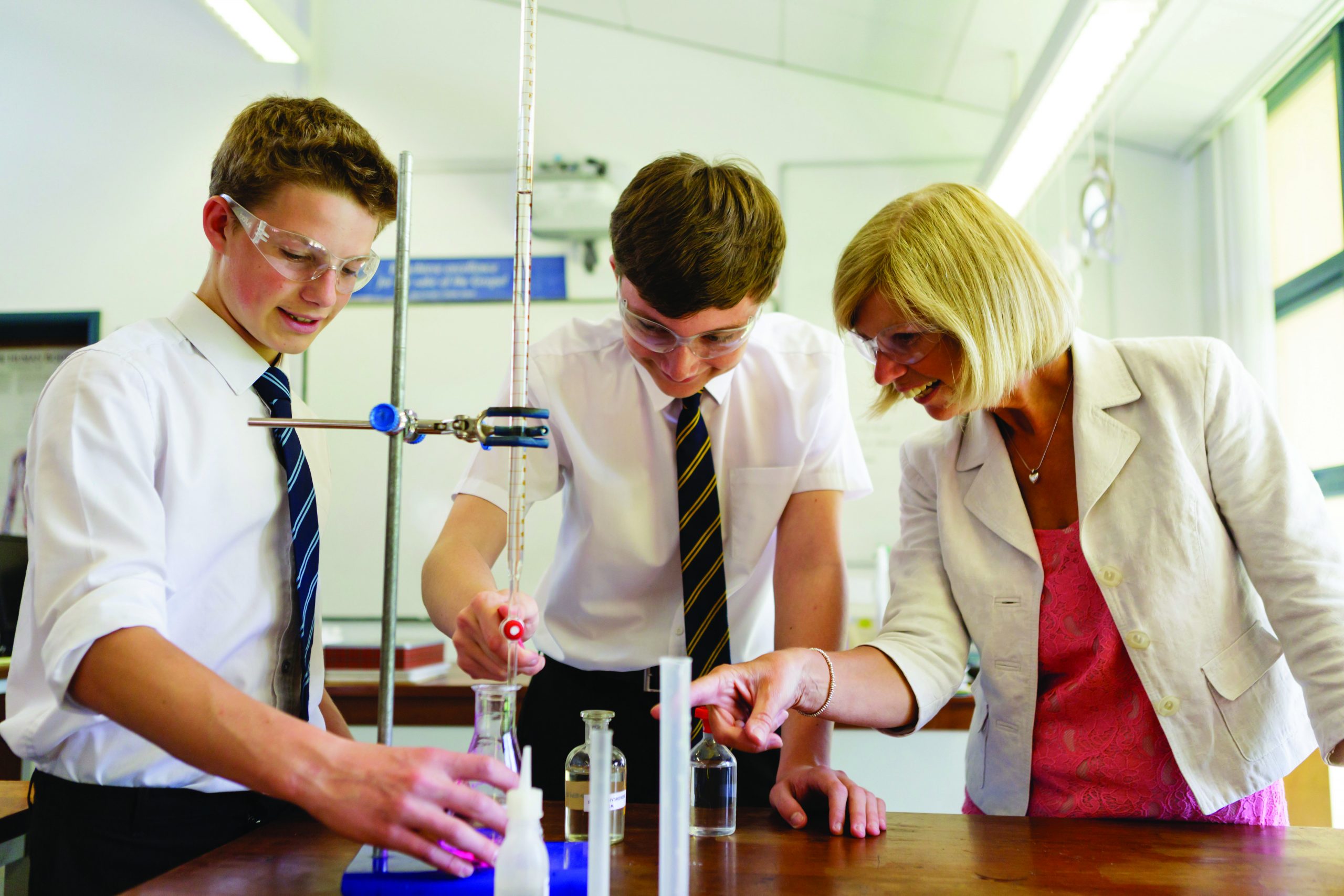
In comparison, the structure of a secondary school and the many adults involved can seem impossibly complex. Your child will be placed in a tutor group with other Year 7s, and the tutor has the responsibility for your child’s overall wellbeing. They generally know your child the best. There is also a Head of House who has the responsibility for the tutor groups in that house. Generally, the staff you will have most contact with will be your child’s tutor and their Head of House.
You can see a full list of school staff here.
Problems Children May Experience and What to Do About Them
Falling out with friends
This is very common as children form new friendships and new pecking orders are established. Give advice but don’t overreact – the tears and anger are normal, but most friendship patterns sort themselves out without adults getting involved. Contact the school if your child becomes depressed or severely withdrawn over this for more than a couple of weeks, or if you suspect that what is happening may be bullying.
The hallmarks of bullying are intentionality (a deliberate attempt to make someone unhappy), persistence (i.e. an ongoing campaign not isolated incidents or arguments about specific issues), and an imbalance of power (if the perpetrators are older, bigger, more powerful or if they are operating as a gang against an individual).
Worrying about particular lessons or feeling picked on or disliked by certain teachers
Try to find out what it is exactly that your child is worried about or why they dislike a certain teacher or subject. If it is because the work is too hard (or too easy), try to spend some time working with them on the subject. It does take time for new teachers to find out an individual’s strengths and weaknesses. Contact the school if your child continues to find the work too easy or too hard after half a term or so, or raise it at parents evening.
If it is because they feel ‘picked on’ it may be the teacher’s individual style which your child is taking personally. It is a life skill to learn that you won’t get on with everyone you have to work with, and a pragmatic approach is to be recommended. Advise them to smile a lot at this teacher and see if it makes a difference! Make sure homework is done well for this subject. Do try not to complain about the teacher in front of your child – this invariably makes the problem worse.
Contact your child’s tutor if the problem continues. Ask to meet with the teacher concerned if necessary and talk to them about the problem. Many teachers are not even aware there is a problem. You do not have to let your child know you have done this – they are often amazed by how ‘nice’ Mr X has suddenly become.
Losing belongings
This is very common for children with organisational difficulties (and very expensive for their parents). Follow the suggestions in the section on organising books and equipment. If after half a term this is not making a difference, contact your child’s tutor and ask for their support – they can often provide ‘checks’ at key times and be very creative in supporting your child towards independence in school.

Getting into trouble for not completing homework
In many ways, homework makes the most demands on both Year 7 pupils and their parents. Make sure your child writes down their homework clearly in their planner each week, and that you know the deadline for it being handed in. If they write down tasks that are so general that neither you nor they can work out what has to be done, contact your child’s tutor and explain the problem.
If homework keeps being forgotten or is not being done to a good standard, you can ask for a meeting with the teacher concerned and work out the best way approach homework from now on.
A Guide to Parents’ Evening
Because of the larger numbers of pupils and the fact that your child now has several teachers, parents’ evenings are organised rather differently in secondary schools.
You will be given the date of the Y7 parents’ evening well in advance. Your child will be tasked with making appointments with the teachers you wish to see that evening.
Most appointments are about 5 minutes long, and you will need to allow some time for finding and moving between teachers. Try to see as many teachers as possible, especially if there are issues you need to raise with them. It is always a good idea to see your child’s tutor as they have the best overview of how your child is settling in generally. Jot down any questions or concerns before the meeting.
Your appointments with the teacher will provide an opportunity for them to tell you how they feel your child is getting on in their subject areas and for you to ask any questions or raise any concerns you have.
If you or they have major concerns, the teacher will probably suggest a further, longer meeting at another time.
Take your child with you to Parents Evening – not only so they can hear what the teachers have to say, but also so they are there to guide you and find the teachers you have arranged to meet.
Finally, don’t feel daunted – all new parents will feel exactly the same.
Contacting the School
Just as it can be hard to balance offering your child too much support (and being accused of fussing) and leaving them to flounder and perhaps fail, it is also hard to achieve the balance between becoming an over-anxious parent (on the phone to the school every time your child falls out with a friend or grazes their knee) and letting things go on too long because you don’t want to interfere.
The job is made much easier if you keep talking to your child about how things are at school. You should have a good idea about how the work is going, and your child’s general feelings about school. This will give you a sound basis for deciding whether your intervention is required or not.
You know your children best, and if any aspect of school life is persistently distressing them, it is probably best to intervene early. If you have talked to your child, offered reassurance, helped them come up with ways of solving the problem themselves, and things still haven’t changed after a couple of weeks, then it is time to speak to the school.
You can find out who to contact for specific matters here.
Hopefully, after reading this guide you’ll have a better idea of how the school works, and how to deal with worries that you or your child might have when starting school. Please remember that we have a whole team of people ready to help with any issues you or your child might be facing, whether that’s in school or at home.
Good luck, and we can’t wait for your child to join us!
Follow Us
Latest News
- A Fond Farewell to the Class of 2025Today, the whole school together to say farewell to this year’s Year 11, who have officially finished for the summer.
- Commemorating VE Day with Group Captain & Chief Test Pilot Ron BurrowsSt Joseph’s Catholic School commemorated VE Day yesterday (May 8th) with lots of bunting, a tea party, and a special visit from Group Captain Ron Burrows.
- St Joseph’s Welcomes Spanish StudentsOver the last few days, we had the privilege of hosting a group of students from Spain.

